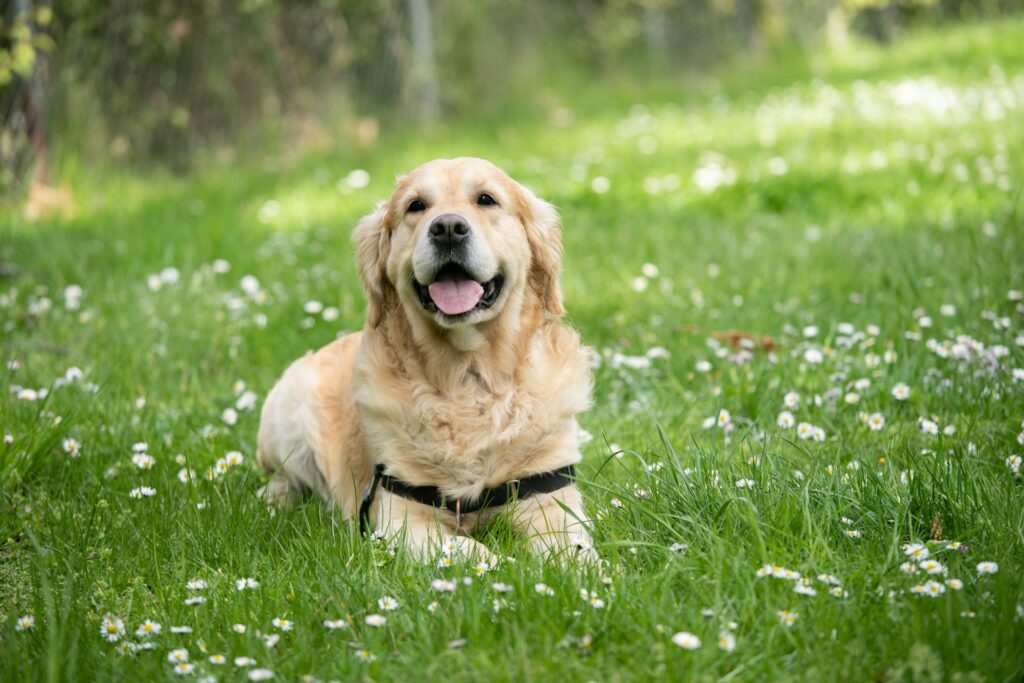How to Handle Digging Dogs Through Professional Dog Training
Digging can be a troublesome behaviour exhibited by many dogs. It’s a natural instinct driven by various factors such as boredom, excess energy, or even the breed’s predisposition.
Addressing this habit effectively requires a comprehensive approach that goes beyond simple scolding. Professional dog training offers a structured solution that can help channel your dog’s instinct into more appropriate activities.
Working with an experienced dog trainer can uncover the root cause of your dog’s digging. Through tailored training strategies, you can learn how to provide mental enrichment and physical exercise to minimise undesirable digging.
With over two decades of experience, a professional has the expertise to guide you through creating a stimulating environment for your dog, as well as equipping you with the necessary tools and techniques to prevent future digging incidents.
Key Takeaways
- Identifying the causes of digging is crucial in managing this behaviour.
- Professional training can provide targeted strategies to curb digging.
- An enriched environment supports your dog’s needs and prevents digging.
Understanding Canine Digging Behaviour
Digging is a natural instinct driven by various factors such as boredom, excess energy, or even the breed’s predisposition.
Before you can effectively address your dog’s penchant for digging, it’s crucial to recognise the variety of factors contributing to this instinctual behaviour.
From genetic predispositions to signs of distress, understanding the underlying causes is the first step toward management.
Instinctive Factors
Digging is an innate behaviour that many dogs exhibit, stemming primarily from their ancestral instincts. It’s a natural activity for seeking comfort and protection—many wild canines dig to create shelters or to stash food securely.
If your pet is digging in your yard, they might be following these age-old instincts.
Breed-Specific Tendencies
Certain breeds, particularly terriers, have been selectively bred for characteristics that include digging behaviours.
Terriers, for instance, historically hunted vermin and dug into their dens; thus, a genetic predisposition towards digging can be seen in these breeds.
When you’re dealing with a breed that has a lineage of digging, your training approach may need to account for these strong instinctual drives.
Signs of Boredom and Anxiety
Persistent digging may also be a dog’s response to boredom or anxiety. Dogs with insufficient mental and physical stimulation will often turn to destructive behaviours like digging to relieve stress or occupy themselves.
In contrast, anxiety-induced digging might be manifest in attempts to escape the yard, often linked to fear or stressors in their environment. It’s important to ensure that your dog receives appropriate exercise and mental challenges to mitigate these behaviours. Identifying the reasons behind your dog’s digging is essential for tailoring an effective training approach.
Consulting with professionals, such as the experienced team at Allbreeds, can offer guidance specifically designed for your dog’s needs.
Effective Training Strategies
To address digging behaviour in dogs effectively, it’s essential to employ proven training approaches designed to modify behaviour while enhancing mental stimulation.
By applying the following strategies, you can help your dog overcome this challenging habit.
Professional Training Approaches
Seeking the guidance of a professional dog trainer can make a significant difference in managing your dog’s digging habits.
These experts can assess environmental factors impacting your dog and create tailored intervention plans.
A professional dog trainer utilises positive reinforcement to build good habits, ensuring that your dog associates non-digging behaviour with rewarding outcomes.
Behaviour Modification Techniques
Behaviourists often employ techniques that involve adjusting motivation and providing adequate exercise.
Your dog may dig due to anxiety or excess energy, so it’s crucial to address the root cause. Behaviour modification techniques might include scheduled training sessions focussing on commands that discourage digging and redirect that energy into more acceptable actions.
Enhancing Mental Stimulation
Enhancing your dog’s mental stimulation is as important as physical activity. Environmental enrichment—such as interactive toys or obstacle courses—can keep your dog engaged, reducing the likelihood of digging due to boredom. Exercise combined with mental challenges provides comprehensive physical and mental stimulation which keeps your dog content and entertained.
Creating a Suitable Environment for Dogs
A tailored environment is vital in curbing your dog’s digging habits. By providing designated areas and stimuli, you encourage positive play and satisfy their digging instincts without harm to your garden.
Safe Digging Zones
Create a designated digging zone in a specific part of your yard. This could be a sandbox or a section with soft soil or sand that allows your dog the pleasure of digging without damaging important parts of your garden.
Clearly mark this area to help your dog understand where it’s acceptable to dig.
Toys and Enrichment Tools
Incorporate various toys and enrichment tools to keep your dog’s mind active and reduce the inclination to dig out of boredom.
Interactive games that stimulate their senses can include puzzle toys filled with treats or even a kiddie pool for them to splash and play in during warmer days.
Exercise and Play Areas
A well-designed exercise and play area is crucial for your dog’s physical and mental health. Regular exercise through play not only keeps them fit but also expends energy that might otherwise be spent on unwanted digging. Ensure this area is spacious and safe for your dog to run, fetch, and have fun.
Preventative Measures and Solutions
When dealing with a digging dog, it’s essential to implement proactive strategies to manage and redirect this common canine behaviour.
Careful backyard management, the use of deterrents, and understanding how to manage a dog’s escaping tendencies are key to maintaining a harmonious outdoor space for both you and your pet.
Backyard Management and Supervision
To effectively prevent digging, your backyard should be a well-managed environment.
Keep an eye on your dog by providing consistent supervision when they’re outdoors. This allows you to intervene before a digging habit forms. For breeds with high prey drives such as dachshunds and terriers, it’s especially important to monitor their activity near fence lines, as they may dig in pursuit of small animals.
Ensure areas with loose soil are secured or difficult for your dog to access, and consider creating a designated digging spot to satisfy their natural tendencies.
Using Deterrents Wisely
Deterrents can be useful in discouraging your dog from digging in unwanted areas.
Consider non-harmful options like a motion-activated sprinkler system that startles your dog away from specific spots. Citrus peels or vinegar can also act as natural repellents when placed near the fence line.
Remember, the goal is to gently guide your dog towards appropriate behaviour, not to frighten or harm them.
Managing Escaping Behaviours
Dogs, particularly breeds known for their working backgrounds like huskies, may dig as a means of trying to escape their confines.
To prevent escaping, reinforce the security of your fence and ensure there are no weak spots where your dog could start to dig. Regularly check the integrity of the fence, and consider burying chicken wire at the base or placing large rocks along the perimeter.
Training programs can also teach your dog to resist escaping behaviours by focusing their intelligence and energy on more productive and satisfying activities.
Professional Help and Resources
In tackling the issue of your dog’s digging behaviour, understanding when to enlist professional help and how to choose the right expert is crucial.
When to Seek a Behaviourist
Consult a behaviourist if your dog’s digging is accompanied by signs of anxiety, separation anxiety, or stress.
These professionals are well-versed in canine behaviour and can provide tailored strategies to manage your dog’s emotions.
For instance, they might suggest specific physical exercises to alleviate frustration or investigate potential allergies or other health issues contributing to the behaviour.
Selecting a Qualified Dog Trainer
In selecting a qualified dog trainer, ensure they offer a mix of love and care with proven training methods. Look for certifications or membership in respected training organisations.
As pet parents, it’s essential to choose a trainer who uses positive reinforcement. Make sure the trainer also understands the unique needs of your dog, regardless of breed or size.
A Perth-based business like Allbreeds leverages over two decades of experience to cater to a wide variety of breeds. This ensures your dog receives adequate exercise and training to curb unwanted digging habits.




